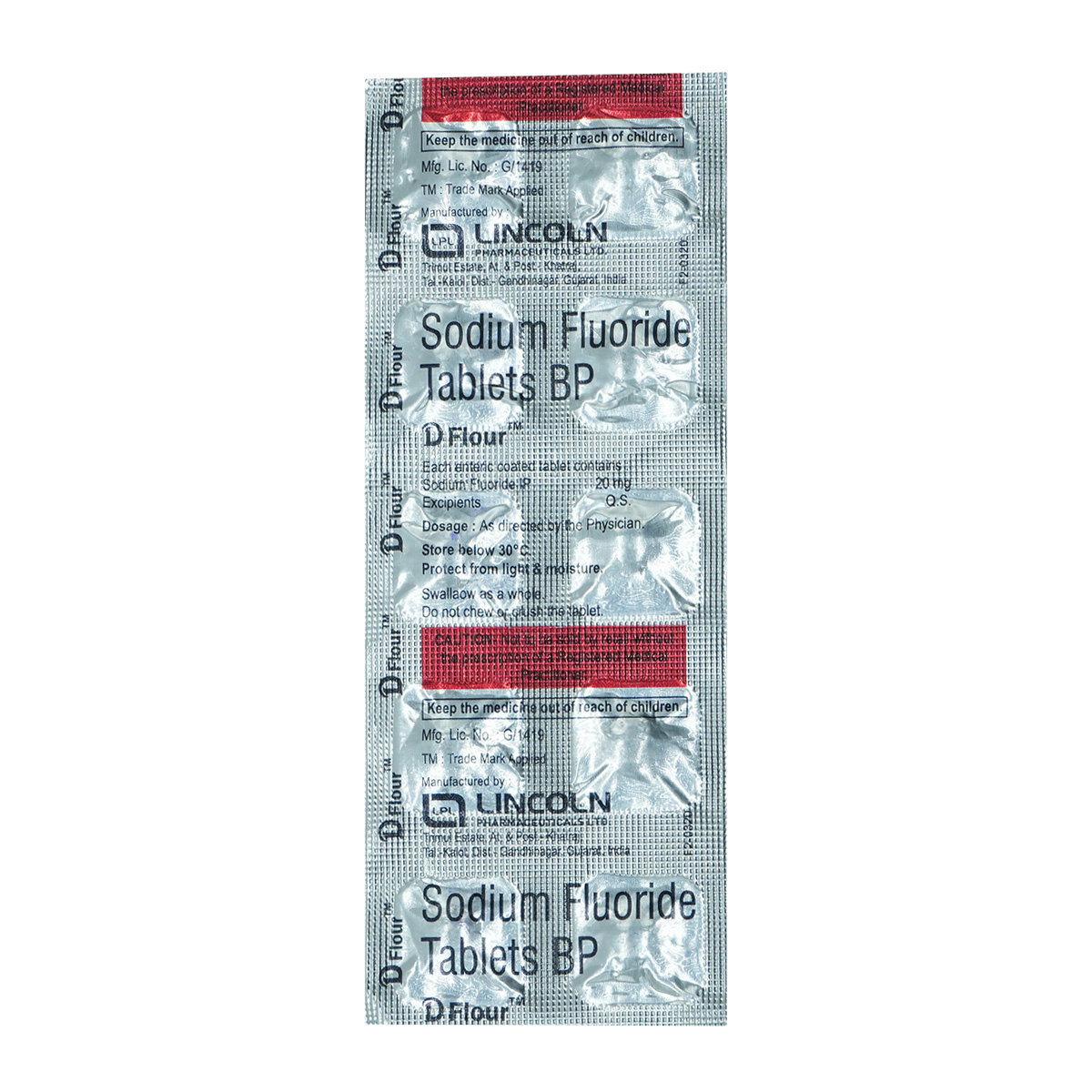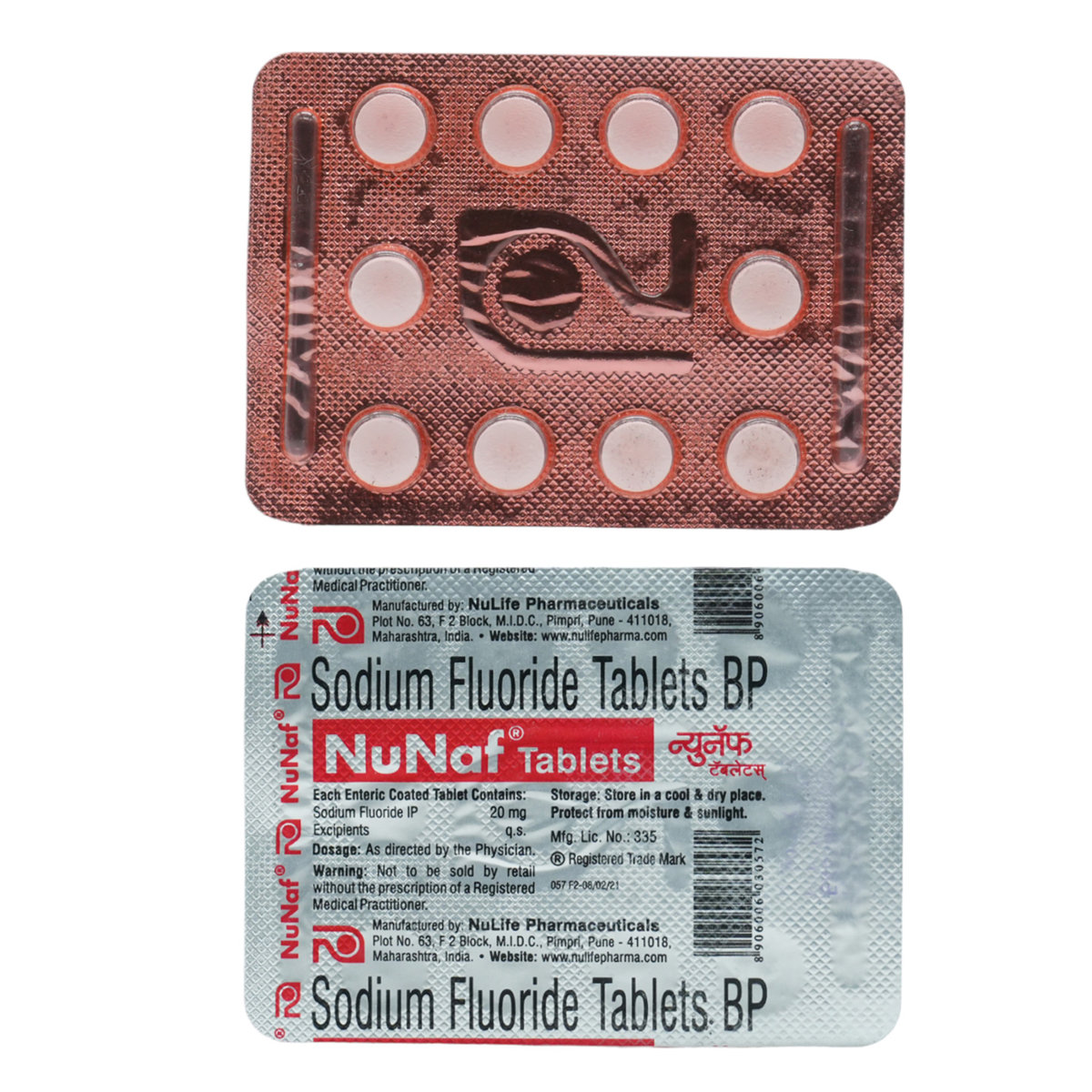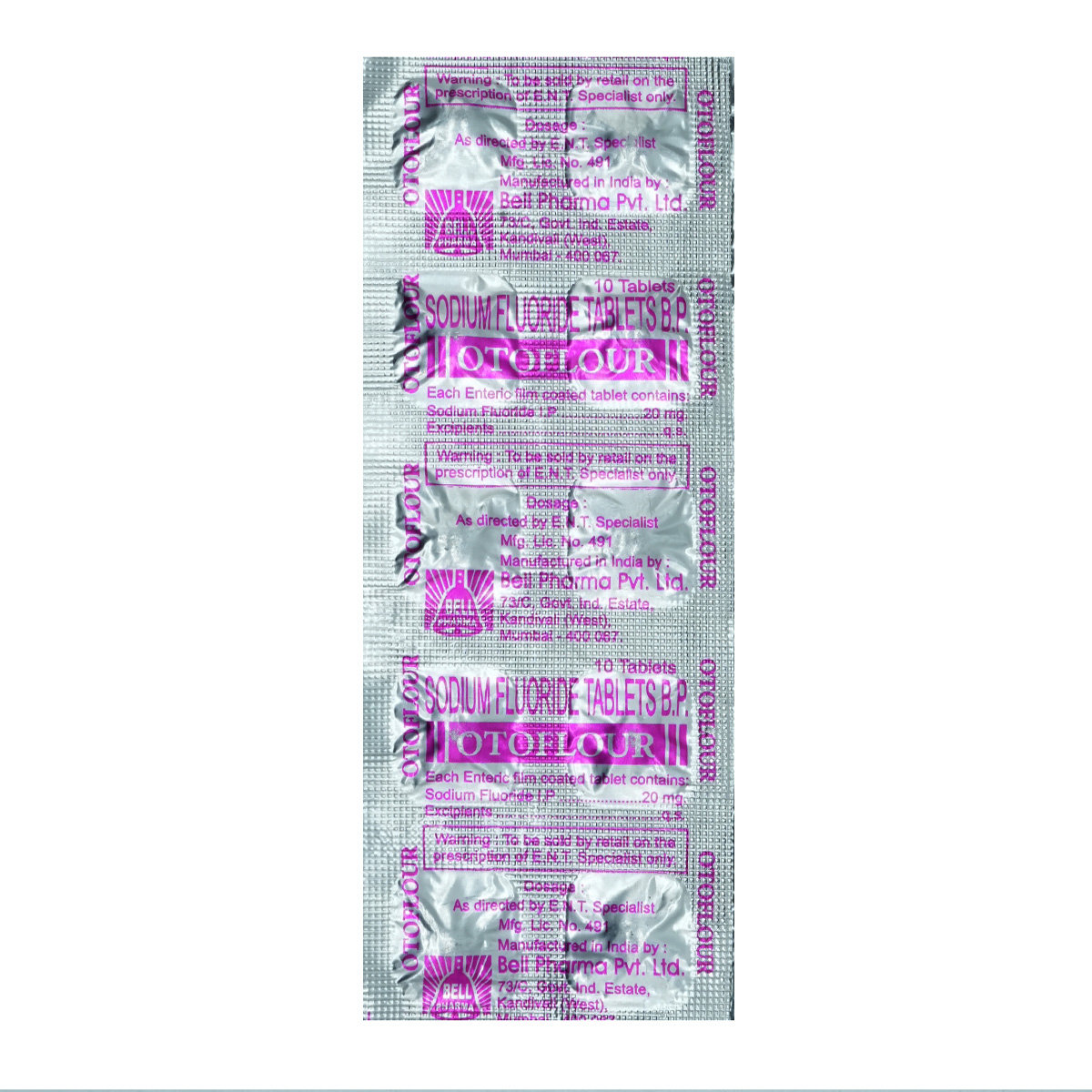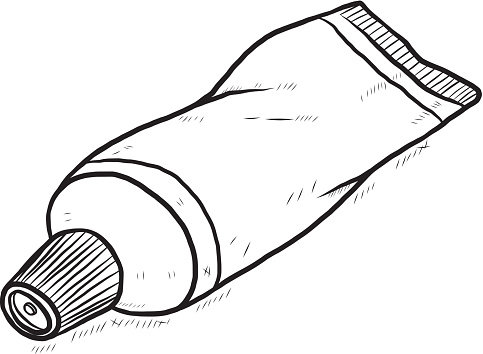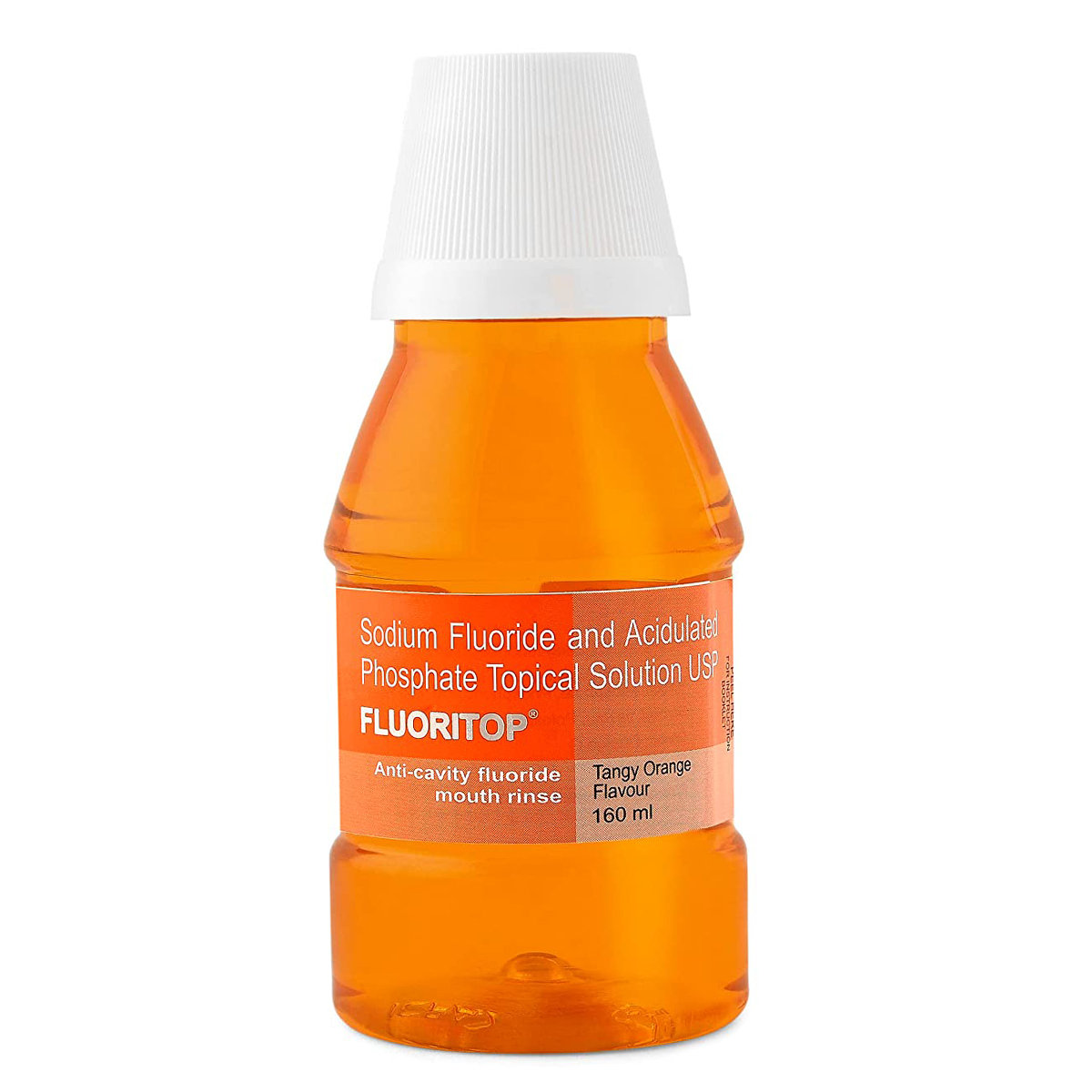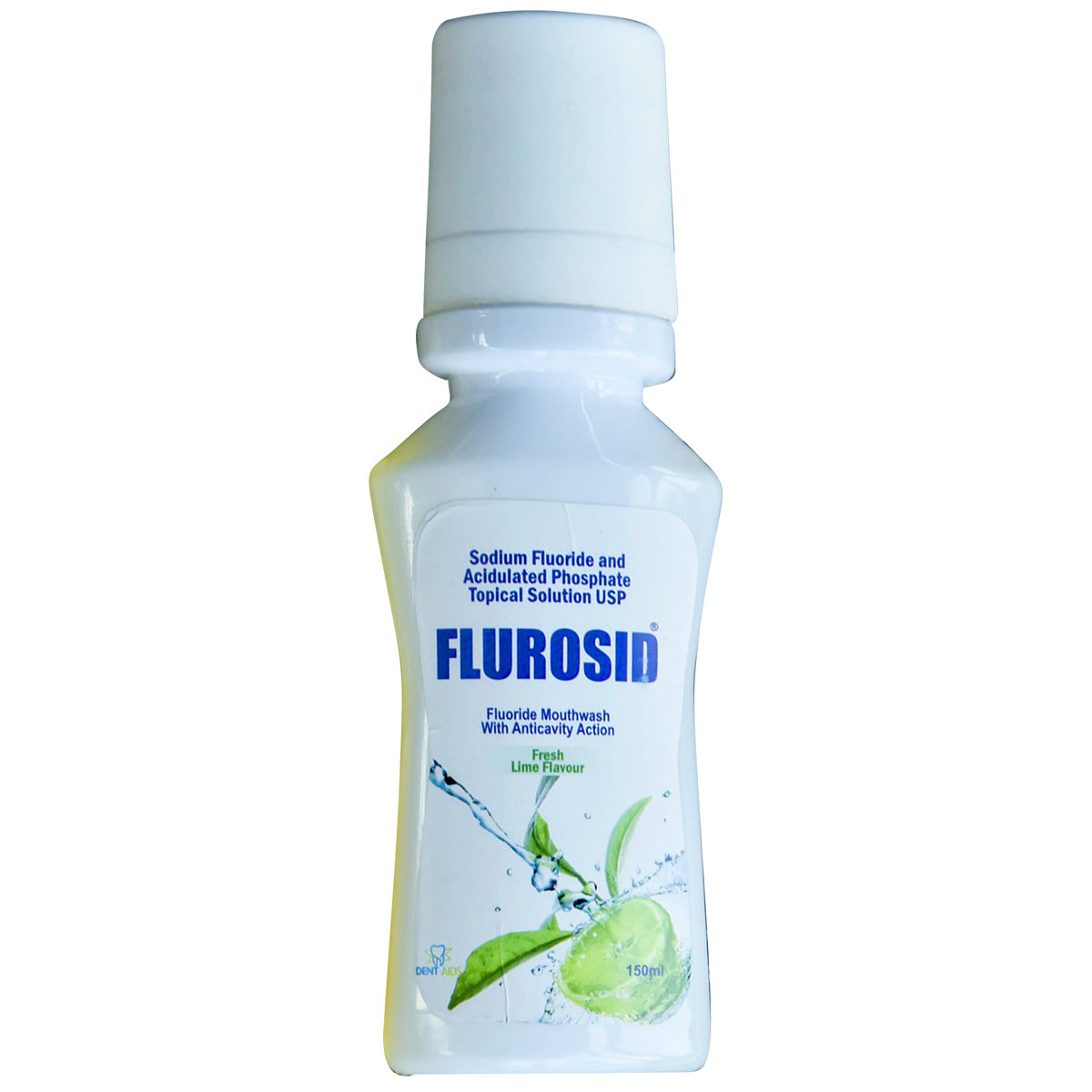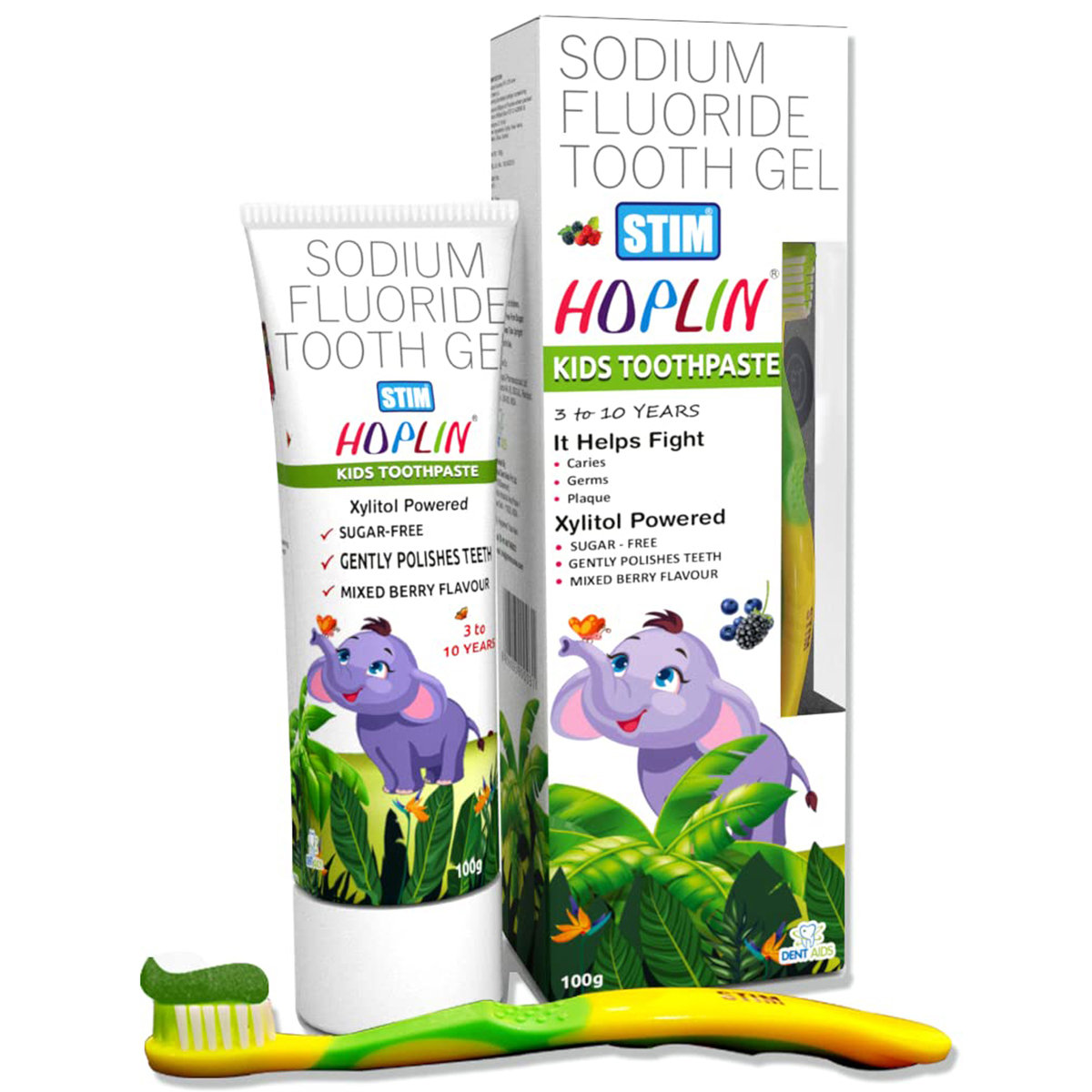Sodium Fluoride
About Sodium Fluoride
Sodium Fluoride belongs to the class of 'anti-cavity agents,' primarily used to prevent dental cavities. A dental cavity or caries is a permanently damaged area in the tooth which develop into tiny holes. Cavities are caused by various factors, such as bacteria in the mouth, sugary drinks, frequent snacking, and not cleaning the teeth well.
Sodium Fluoride contains Sodium fluoride, a mineral. It prevents cavities/decay by making the enamel resistant to the decay caused by acids and bacteria. It further strengthens the tooth enamel by mineralization.
Use Sodium Fluoride as advised by the doctor. Common side effects of Sodium Fluoride include nausea, vomiting, stomach upset and gum irritation. These side effects are not familiar to everyone and may vary individually. Most of the side effects do not require medical attention and resolve over time. If you notice any unmanageable side effects, please consult your doctor.
Let your doctor know if you use other dental products before starting Sodium Fluoride. Please tell your doctor if you are known to be allergic to Sodium Fluoride or other medicines. Inform your doctor if you have severe kidney problems, joint pains, stomach ulcers, and mouth problems, such as discolouration of the teeth, mouth sores and mucositis (the inflammation and ulceration of the mucous membranes lining the digestive tract) before using Sodium Fluoride. Please let your doctor know if you are pregnant or breastfeeding before using Sodium Fluoride. This medicine should be used in children only with the doctor's advice.
Uses of Sodium Fluoride
Medicinal Benefits
Sodium Fluoride contains Sodium fluoride used to treat dental cavities. It prevents cavities/decay by making the enamel resistant to the action of acids and bacteria. It further strengthens the tooth enamel by mineralization. Sodium fluoride tablets are also used to treat conduction deafness due to otosclerosis (middle ear hearing loss) when recommended by an ENT (ear, nose and throat) specialist or otolaryngologist.
Directions for Use
Storage
Side Effects of Sodium Fluoride
- Nausea
- Vomiting
- Stomach upset
- Gum irritation
Drug Warnings
Avoid drinking, eating or brushing immediately after using Sodium Fluoride. Let your doctor know if you use any other dental products before starting Sodium Fluoride. Inform your doctor if you have any kidney problems, joint pains, stomach ulcers, and mouth problems, such as discolouration of the teeth, mouth sores and mucositis, before using Sodium Fluoride. Please let your doctor know if you are pregnant or breastfeeding before using Sodium Fluoride. Sodium Fluoride should be used in children only with the doctor's advice.
Drug Interactions
Drug-Drug Interaction: Sodium Fluoride may interact with antacids, vitamins, and minerals like calcium, magnesium, and aluminium.
Drug-Food Interaction: Maintain a one-hour gap between dairy products/laxatives and Sodium Fluoride.
Drug-Disease Interaction: Before using Sodium Fluoride, let your doctor know if you have discolouration of the teeth, mouth sores, mucositis, kidney problems, joint pains, or stomach ulcers.
Drug-Drug Interactions Checker List:
Safety Advice

Alcohol
cautionThere is limited data on how alcohol consumption affects Sodium Fluoride. It is advised to consult your doctor for more information.

Pregnancy
consult your doctorPlease consult your doctor before using Sodium Fluoride if you are pregnant or planning pregnancy.

Breast Feeding
cautionSodium Fluoride passes into breastmilk. Hence, please consult your doctor before using Sodium Fluoride if you are a breastfeeding mother.

Driving
not applicableSodium Fluoride usually does not interfere with your driving abilities.

Liver
consult your doctorPlease consult your doctor before using Sodium Fluoride if you have liver problems.

Kidney
consult your doctorPlease consult your doctor before using Sodium Fluoride if you have kidney problems.

Children
cautionPlease consult your doctor before using Sodium Fluoride for children. Your doctor will decide if Sodium Fluoride can be given to your child based on the age and condition of your child
Habit Forming
Diet & Lifestyle Advise
- Maintain good oral hygiene to prevent infection from spreading.
- Regular dental check-ups can help prevent the progression of cavities.
- Get your teeth cleaned by a dental professional every six months.
- Brush your teeth with fluoride toothpaste.
- Flossing your teeth once a day helps remove plaque and bacteria from the teeth.
- Use an antibacterial mouthwash to control plaque formation.
- Avoid tobacco products and alcohol consumption.
- Limit sugary and starch foods.
Patients Concern
Disease/Condition Glossary
Dental cavities: A dental cavity or caries is a permanently damaged tooth area that develops into tiny holes. Cavities are caused by various factors, such as bacteria in the mouth, sugary drinks, frequent snacking, and not cleaning the teeth well. Untreated cavities can cause infection, toothache, and tooth loss. Plaque starts forming after eating/drinking anything sugary. The bacteria in the mouth turn the sugar into acid. The acid in plaque erodes the tooth enamel leading to tooth decay. Symptoms of tooth cavities include tooth pain, tooth sensitivity, black/white staining on the teeth, and a visible hole in the tooth.
FAQs
Sodium Fluoride contains Sodium fluoride that strengthens the tooth enamel. It prevents cavity formation by making the enamel resistant to the decay caused by acids and bacteria.
Bacteria, food, acid, and saliva combine in the mouth to form a sticky substance named plaque. The acid in plaque causes damage to the teeth' enamel leading to cavities. Cavities are caused by various factors, such as bacteria in the mouth, sugary drinks, frequent snacking, and not cleaning the teeth well.
You are recommended to let your doctor know if you are suffering from kidney problems, joint pains, stomach ulcers, and mouth problems, such as discolouration of the teeth, mouth sores and mucositis, before using Sodium Fluoride.
The absorption of sodium fluoride may be get interfered by calcium, magnesium, and aluminium. Hence it is better to maintain an hour gap between sodium fluoride formulations and dairy products (milk, yoghurt), antacids, laxatives, and vitamins/minerals.

